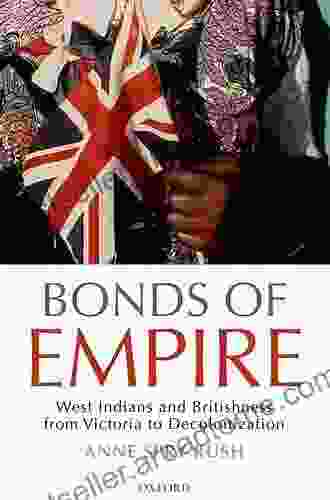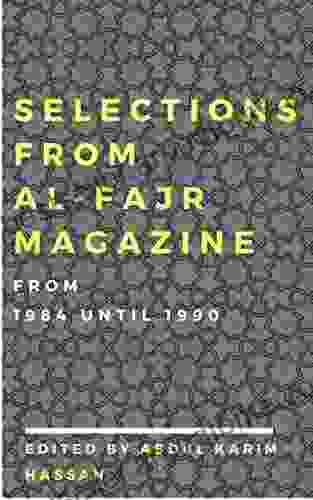West Indians and Britishness from Victoria to Decolonization: Exploring Identity and Belonging

5 out of 5
| Language | : | English |
| File size | : | 4886 KB |
| Print length | : | 320 pages |
| Lending | : | Enabled |
| Screen Reader | : | Supported |
| X-Ray for textbooks | : | Enabled |
The relationship between West Indians and Britishness is a complex and evolving one, marked by both shared history and cultural differences. This article explores the ways in which West Indians have negotiated their identity and sense of belonging within the British context, from the Victorian era to the period of decolonization.
Early Encounters: The Victorian Era
The first significant wave of West Indian migration to Britain occurred in the mid-19th century, primarily driven by economic factors. Many West Indians were drawn to the UK in search of work and opportunity, but they often faced discrimination and prejudice. Despite these challenges, some West Indians were able to establish themselves within British society, albeit often on the margins.
One notable figure from this period is Mary Seacole, a Jamaican-born nurse who became known for her work during the Crimean War. Seacole established a hotel in Scutari, Turkey, which provided a much-needed sanctuary for British soldiers. Her story is an inspiring example of how West Indians were able to contribute to British society despite the barriers they faced.
The Interwar Years: A Time of Change
The interwar years saw a significant increase in West Indian migration to Britain. This was due in part to the economic depression that hit the Caribbean in the 1930s, as well as the British government's decision to restrict immigration from other parts of the Empire. As a result, large numbers of West Indians settled in Britain, primarily in urban areas such as London and Birmingham.
During this period, West Indians began to organize themselves politically and culturally. In 1931, the League of Coloured Peoples was founded, and in 1938, the Caribbean Labour Congress was established. These organizations played a key role in representing the interests of West Indians in Britain, and in challenging the racism and discrimination they faced.
The Post-War Era: Decolonization and Beyond
The end of the Second World War marked a turning point in the relationship between West Indians and Britain. The war had exposed the contradictions of British imperialism, and it helped to spur on the movement for decolonization across the Empire. In 1948, Britain granted independence to India and Pakistan, and in the years that followed, most of the other British colonies in the Caribbean and Africa gained their independence as well.
However, decolonization did not end the relationship between West Indians and Britain. Many West Indians chose to remain in Britain, and they continued to play an important role in British society. In the post-war era, West Indians have made significant contributions to British culture, politics, and economics. They have also played a key role in the fight against racism and discrimination.
The relationship between West Indians and Britishness is a complex and evolving one that has been shaped by both shared history and cultural differences. From the early encounters of the Victorian era to the present day, West Indians have negotiated their identity and sense of belonging within the British context. Despite the challenges they have faced, West Indians have made significant contributions to British society, and they continue to play an important role in shaping the country's future.
5 out of 5
| Language | : | English |
| File size | : | 4886 KB |
| Print length | : | 320 pages |
| Lending | : | Enabled |
| Screen Reader | : | Supported |
| X-Ray for textbooks | : | Enabled |
Do you want to contribute by writing guest posts on this blog?
Please contact us and send us a resume of previous articles that you have written.
 Book
Book Novel
Novel Page
Page Chapter
Chapter Text
Text Story
Story Genre
Genre Reader
Reader Library
Library Paperback
Paperback E-book
E-book Magazine
Magazine Newspaper
Newspaper Paragraph
Paragraph Sentence
Sentence Bookmark
Bookmark Shelf
Shelf Glossary
Glossary Bibliography
Bibliography Foreword
Foreword Preface
Preface Synopsis
Synopsis Annotation
Annotation Footnote
Footnote Manuscript
Manuscript Scroll
Scroll Codex
Codex Tome
Tome Bestseller
Bestseller Classics
Classics Library card
Library card Narrative
Narrative Biography
Biography Autobiography
Autobiography Memoir
Memoir Reference
Reference Encyclopedia
Encyclopedia Denise Donohue
Denise Donohue Anton Drake
Anton Drake Kristin Diversi
Kristin Diversi Babita Shrestha
Babita Shrestha Jeff Anthony
Jeff Anthony Anni Daulter
Anni Daulter Golden Lion Publications
Golden Lion Publications Anna Merlan
Anna Merlan Anne Applebaum
Anne Applebaum James C Kaufman
James C Kaufman David Harvey
David Harvey Ashwin Pajankar
Ashwin Pajankar Anne Speckhard
Anne Speckhard Artemis Morris
Artemis Morris Aponi Garlow
Aponi Garlow Leena Mary
Leena Mary Phil Barlow
Phil Barlow Robert Mcteigue
Robert Mcteigue Vineeta Prasad
Vineeta Prasad Ariel Ezrachi
Ariel Ezrachi
Light bulbAdvertise smarter! Our strategic ad space ensures maximum exposure. Reserve your spot today!

 Alexandre DumasDive into the Enigmatic World of the Richards Brothers Boxed Set: A Literary...
Alexandre DumasDive into the Enigmatic World of the Richards Brothers Boxed Set: A Literary...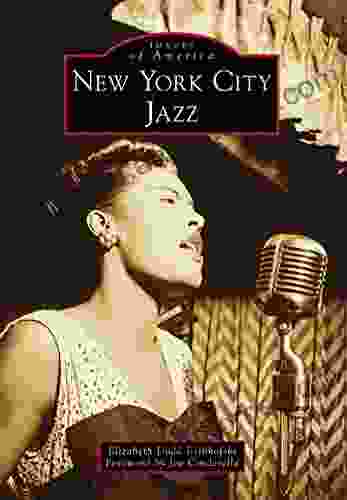
 Edgar HayesNew York City Jazz: Images of America - A Visual Symphony of the City's Jazz...
Edgar HayesNew York City Jazz: Images of America - A Visual Symphony of the City's Jazz... Hank MitchellFollow ·18.1k
Hank MitchellFollow ·18.1k Billy PetersonFollow ·8.7k
Billy PetersonFollow ·8.7k Troy SimmonsFollow ·10k
Troy SimmonsFollow ·10k Caleb LongFollow ·14.1k
Caleb LongFollow ·14.1k Oliver FosterFollow ·10.1k
Oliver FosterFollow ·10.1k Calvin FisherFollow ·6.1k
Calvin FisherFollow ·6.1k Efrain PowellFollow ·7.1k
Efrain PowellFollow ·7.1k Floyd PowellFollow ·14.2k
Floyd PowellFollow ·14.2k
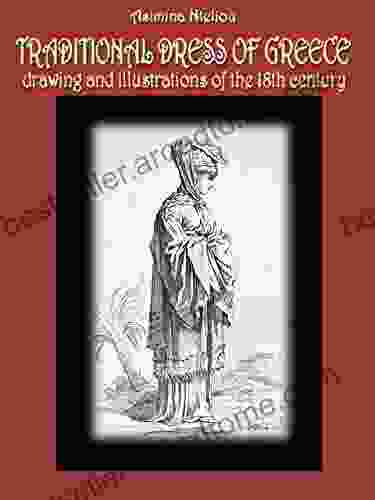
 Jeremy Cook
Jeremy CookDrawing and Illustrations of the 18th Century: A Journey...
Step into the...

 Easton Powell
Easton PowellPhysician Experience With Obstructive Sleep Apnea: The...
Obstructive sleep apnea (OSA) is a common...

 Cruz Simmons
Cruz SimmonsUnlock Your Inner Healer: The Transformative Power of...
Are you ready to embark on a profound healing...
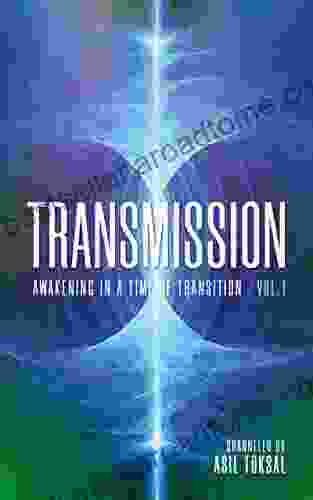
 Paulo Coelho
Paulo CoelhoTransmission Awakening In Time Of Transition Vol. 1: A...
Transmission Awakening...
5 out of 5
| Language | : | English |
| File size | : | 4886 KB |
| Print length | : | 320 pages |
| Lending | : | Enabled |
| Screen Reader | : | Supported |
| X-Ray for textbooks | : | Enabled |


